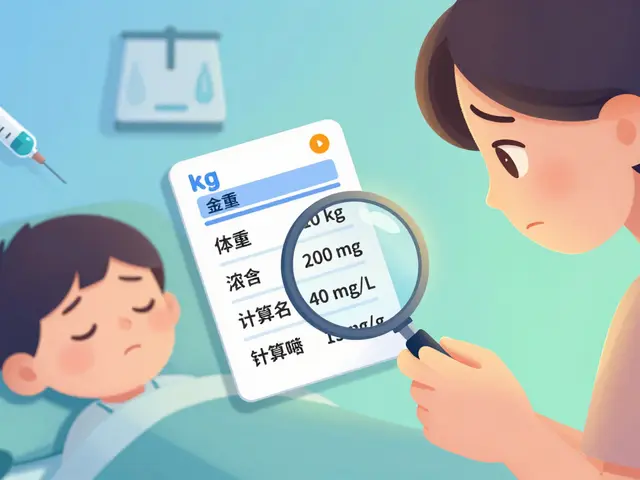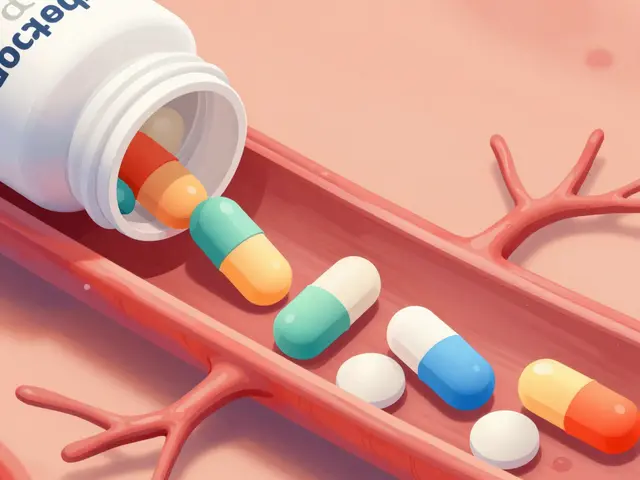Understanding Heart Failure and Its Treatment
As a blogger, I've always been passionate about sharing valuable information on health topics. Today, I'd like to discuss the role of Lisinopril in heart failure treatment. But first, let's understand what heart failure is and why it's crucial to find effective treatments for this condition. Heart failure occurs when the heart can't pump enough blood to meet the body's needs, leading to various symptoms such as shortness of breath, fatigue, and swelling in the legs. Heart failure is a chronic condition that usually requires long-term management, and medications like Lisinopril can play a vital role in that process.
What is Lisinopril and How Does It Work?
Lisinopril is an angiotensin-converting enzyme (ACE) inhibitor, a class of medications commonly used in heart failure treatment. It works by blocking the enzyme that produces angiotensin II, a hormone that can constrict blood vessels and increase blood pressure. By inhibiting this enzyme, Lisinopril helps relax blood vessels and lower blood pressure, making it easier for the heart to pump blood. This, in turn, can alleviate some of the symptoms associated with heart failure and improve overall heart function.
The Benefits of Lisinopril in Heart Failure Management
There are several reasons why Lisinopril is considered a valuable medication in the management of heart failure. Firstly, it has been shown to reduce hospitalizations and improve survival rates in people with heart failure. This means that patients taking Lisinopril may have a better quality of life and lower healthcare costs. Secondly, Lisinopril has a relatively low risk of side effects compared to other heart failure medications. While side effects can still occur, they are generally milder and less likely to interfere with daily activities. Finally, Lisinopril is available as a generic drug, making it an affordable option for many patients.
How to Take Lisinopril Safely and Effectively
As with any medication, it's crucial to take Lisinopril as prescribed by your healthcare provider. This usually involves taking a specific dose once daily, with or without food. Your doctor may start you on a lower dose and gradually increase it based on your response to the medication. It's essential to take Lisinopril consistently, even if you feel better, as stopping the medication abruptly can lead to a worsening of your heart failure symptoms. If you experience any side effects, it's important to discuss them with your doctor, who can help you determine the best course of action.
Potential Side Effects and Interactions
While Lisinopril is generally well-tolerated, it can cause side effects in some people. The most common side effect is a dry, persistent cough, which usually goes away once the medication is stopped. Other potential side effects include dizziness, headache, rash, and changes in taste. It's essential to be aware of possible drug interactions, as some medications can interfere with how Lisinopril works or increase the risk of side effects. For example, potassium supplements, salt substitutes containing potassium, and certain medications like diuretics can increase the risk of high potassium levels when taken with Lisinopril. Be sure to discuss all medications and supplements you take with your healthcare provider to avoid potential interactions.
Monitoring Your Heart Failure and Ongoing Care
Taking Lisinopril is just one aspect of managing heart failure. It's crucial to work closely with your healthcare team to monitor your condition and make any necessary adjustments to your treatment plan. This may involve regular check-ups, blood tests, and imaging studies to assess your heart function. In addition to medication, lifestyle changes such as eating a heart-healthy diet, exercising regularly, and managing stress can also play a significant role in managing heart failure. Remember, managing heart failure is a lifelong commitment, and staying informed and proactive about your care is the key to living a healthier and more fulfilling life.




Sean Thomas on 8 May 2023, AT 00:53 AM
The government’s pharma‑big‑brother is using Lisinopril to keep us all in check.